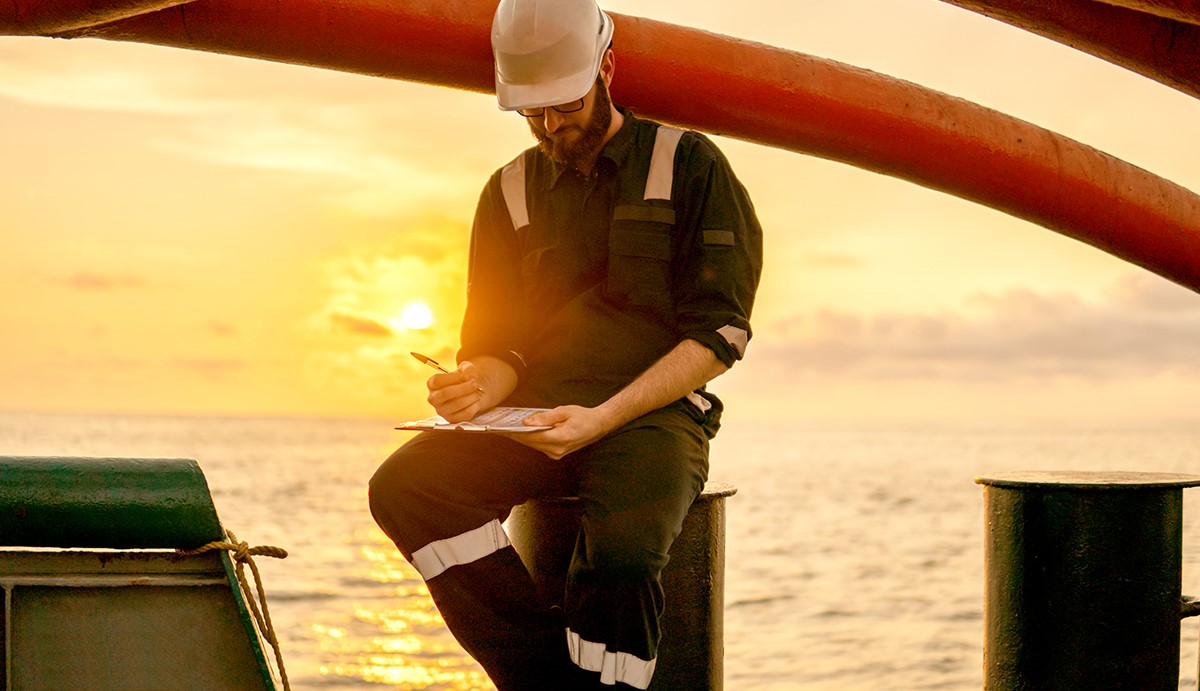
There have been a number of articles in recent times about how crew members are undervalued and underappreciated. While hospital staff were rightly lauded for their amazing dedication during the COVID pandemic, very little was written about the work that seafarers did to keep global supply chains moving.
There were calls for seafarers to be recognized as key workers yet governments were slow to react when support for crew was needed most and a huge crew change crisis ensued. At one time more than 400,000 seafarers were estimated to be stuck onboard with very few countries willing to allow them ashore to be repatriated, as lockdowns were universally enforced to limit the spread of the virus.
Even when changes were eventually allowed, seafarers had to wear full hazmat suits when boarding planes to take them home while they sat next to other passengers that only had to wear masks.
Onboarding was equally difficult with seafarers being expected to quarantine in hotels for up to 2 weeks before being allowed on a vessel.
Then the Ukraine and Russia conflict started which has also caused major issues. As the West imposed sanctions on Russia, including majorly restricting the banking sector, many Russian seafarers were unable to use their accounts to deposit their wages. Equally as Ukrainian cities and towns were enveloped in the conflict, many bank branches closed down leaving crew members with the same issues as their Russian colleagues.
It is pleasing to see that the industry has started to act, taking notice of the plight of the seafaring community with movements like the Neptune Declaration being joined by key maritime businesses to help seafarer wellbeing and to deal with the crew change crisis in particular.
Equally, the seafarer human sustainability declaration has been launched by international medical and public health solutions provider VIKAND as a way of encouraging businesses to work together to improve the lives of seafarers from not only a mental and physical wellbeing standpoint but also addressing working conditions. This holistic approach views crew members as essential to keeping world trade moving as around 90% of everything, we consume starts its journey onboard a ship.
ShipMoney has tried to play its part in helping seafarers in crisis particularly during the Ukrainian/Russian conflict. With no access to bank accounts for these seafarers to receive their wages, a quick and efficient solution was needed. A major client of ShipMoney, V.Ships, asked them to help their Russian and Ukrainian seafarers get paid.
This was a huge challenge for ShipMoney but within 3 weeks the company managed to set up a complex account and sub-account structure with reporting for several hundred ships.
ShipMoney also issued more than 4,000 virtual wallets plus Visa debit cards to affected crew members around the world which allowed V. Ships to meet its March payroll on time.
So, it just goes to show what can be done when you partner in the maritime industry to support its people. Much more can be done to resolve complex issues while we look to attract new talent into the industry and show what a wonderfully diverse and stimulating range of careers are available in maritime. The way to do this is to show how we value the workforce by nurturing and supporting all crew members worldwide who power a fascinating and challenging industry.

